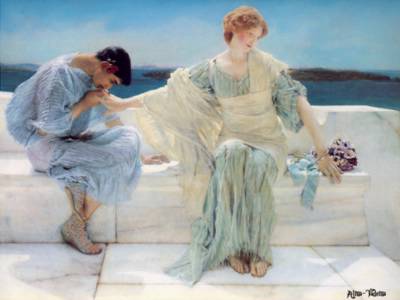
This week's "The New Yorker" arrived today. No Seymour Hirsh stories about Abu Ghraib, but an interesting piece on the institution of marriage:
From "Love Supreme," by Adam Haslett:
"For centuries in Europe, formal marriage was a private contract between landed families, designed to insure that property remained within a particular lineage. In the upper classes, families essentially married other families, forging political alliances and social obligations among relatives and kin. It was during the Reformation, with the emergence of the early Protestant idea of "companionate marriage," that the emotional bond between husband and wife came to be seen as an end in itself. As the noted social historian Lawrence Stone noted, this was a marked departure from the Catholic idea of chastity, which considered earthly marriage a more or less unfortunate necessity meant to accomodate human weakness; "It is better to marry than to burn" St. Paul had said, but he made it sound like a close call. So when the puritans wrote of husbands and wives as mutually respectful and affectionate partenrs, they were moving toward a new understanding of marriage as a kind of spiritual friendship.
It was Milton who took this concept to its logical conclusion. Having married a woman with whom he soon discovered he had nothing in common, he became a staunch advocate of divorce. When the "meet and happy conversation" that is "the chiefest and the noblest end of marriage" ceases, he argued, no authority should have the power to force a man and woman to remain wed. It was hundreds of years before the law caught up with this notion that irreconsilable differences might be grounds for divorce. But what his tracts on the subject demonstrate is that early Protestant thinking about matrimony contained the seeds of our own more radical individualism.
These days, few would disagree that respect and affection are central to a successful marriage. But most of us would add another ingredient, which had long been viewed skeptically as a reason to wed: romantic love. Burton, in his "Anatomy of Melancholy". . . reflected a common view when he described marriage as one of several "remedies of love," which was itself an illness to be overcome. Not until the confessional diaries and novels of the late eighteenth and early nineteenth centuries started to influence bourgeois notions of what Jane Austin called "connubiial felicity" did romance begin its steady ascent in the martial realm. Today, needless to say, the most respectable reason for getting married is that you have fallen in love. We have managed to create an ideal of matrimony that combines both lifetime companionship and the less stable but more intoxicating pleasures of romantic ardor. . .
The philosopher Charles Taylor. . . argues that the trend line runs in one direction: from a self-understanding gained from our place in larger entities - such as a chain of being or divine order - toward purpose discovered from within, through what we consider to be authentic self-expression. . . The choice of whom to marry has become less about satisfying the demands of family and community than about satisfying oneself."

No comments:
Post a Comment